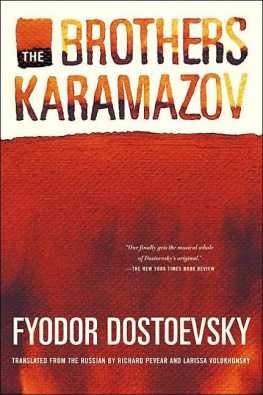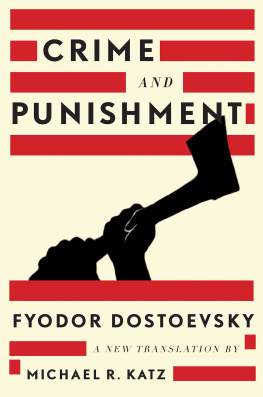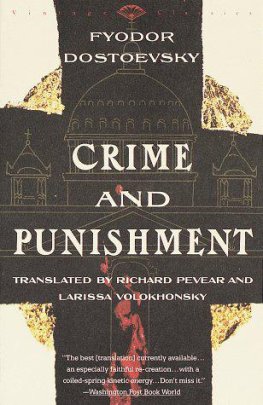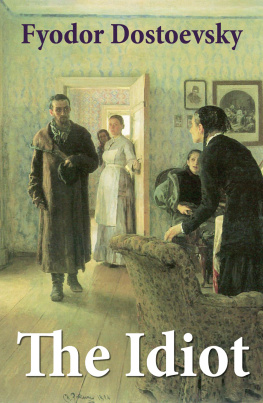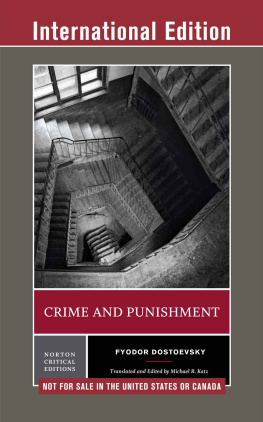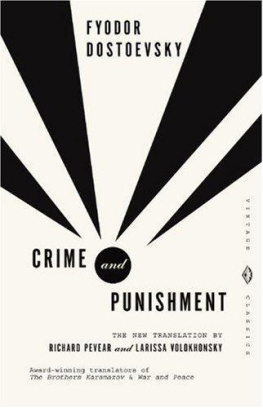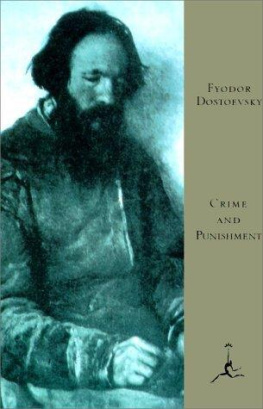The Brothers Karamazov is a joyful book. Readers who know what it is about may find this an intolerably whimsical statement. It does have moments of joy, but they are only moments; the rest is greed, lust, squalor, unredeemed suffering, and a sometimes terrifying darkness. But the book is joyful in another sense: in its energy and curiosity, in its formal inventiveness, in the mastery of its writing. And therefore, finally, in its vision.
This paradox is not peculiar to The Brothers Karamazov. What is peculiar to Dostoevsky is the intensifying of the contrast. The manner of The Brothers Karamazov, as opposed to its matter, is essentially comic, and its humor erupts at the most unexpected moments. It is a comedy of style which, again paradoxically, in no way detracts from the realism in the highest sense that Dostoevsky claimed as the principle of his art. The seriousness of art is not the same as the seriousness of philosophy, or the seriousness of injustice. The difference, which Dostoevsky understood very well, has sometimes escaped his commentators.
Perhaps from a similar mistaking of Dostoevskys intentions, previous translators of The Brothers Karamazov into English have revised, corrected, or smoothed over his idiosyncratic prose, removing much of the humor and distinctive voicing of the novel. We have made this new translation in the belief that a truer rendering of Dostoevskys style would restore missing dimensions to the book.
The juxtaposing of extremes that one finds in The Brothers Karamazov was also a mark of Dostoevskys life. The three years he spent working on the novel, which was completed in 1880, were comparatively the most settled he was to know. In 1871, at the age of fifty, he had returned to Russia after four years of voluntary exile abroad. His young wife, Anna Grigorievna, took over his practical affairs and in 1873 became his publisher, which for the first time brought him some financial stability. In 1876 Dostoevsky and his wife purchased the house they had been renting in the quiet provincial town of Staraya Russa, a setting that transferred itself to The Brothers Karamazov . Their domestic life was disrupted by one tragic eventthe death of their three-year-old son, Alexei, in 1878which also left its deep mark on the novel. But as an author and as a public figure, Dostoevsky was at the highest point of his career. Prominent friends introduced him at court; the emperor Alexander II asked him to be the spiritual guide of his younger sons, the Grand Dukes Sergei and Pavel; he made the acquaintance of the future Alexander III and presented him with copies of his works. He was a frequent guest at aristocratic salons in Petersburg. The Brothers Karamazov, which was appearing serially, was being read and discussed with great excitement. In Moscow, on June 8, 1880, he delivered an address on the poet Pushkin which brought him enormous public acclaim. His funeral eight months later, in the words of his biographer Mochulsky, turned into an historical eventthirty thousand people accompanied his coffin, seventy-two delegations carried wreaths, fifteen choirs took part in the procession.
Some three decades earlier, however, on April 23, 1849, Dostoevsky had been arrested along with other members of a secret utopian society and sentenced to death. The emperor Nikolai I, father of Alexander II, changed the sentence but ordered that the reprieve be announced only at the last minute. After eight months in the Petropavlovsky Fortress, the young writer was taken out to what he thought would be his execution. He described the event in a letter to his brother Mikhail:
Today, December 22, we were driven to Semyonovsky Parade Ground. There the death sentence was read to us all, we were given the cross to kiss, swords were broken over our heads, and our final toilet was arranged (white shirts). Then three of us were set against the posts so as to carry out the execution. We were summoned in threes; consequently I was in the second group, and there was not more than a minute left to live. I remembered you, my brother, and all yours; at the last minute you, you alone, were in my mind, and it was only then that I realized how much I love you, my dearest brother! I also succeeded in embracing Pleshcheyev and Durov, who were beside me, and bade farewell to them. Finally the retreat was sounded, those who had been tied to the posts were led back, and they read to us that His Imperial Majesty granted us our lives. Thereupon followed the actual sentence .
Brother, Im not depressed and havent lost spirit. Life everywhere is life, life is in ourselves and not in the external. There will be people near me, and to be a human being among human beings, and remain one forever, no matter what misfortunes befall, not to become depressed, and not to falterthis is what life is, herein lies its task. I have come to recognize this. This idea has entered into my flesh and blood. Yes, its true! That head which created, lived by the highest life of art, which acknowledged and had come to know the highest demands of the spirit, that head has been cut from my shoulders. Memory remains, and the images I have created and still not molded in flesh. They will leave their harsh mark on me, it is true! But my heart is left me, and the same flesh and blood which likewise can love and suffer and desire and remember, and this is, after all, life. On voit le soleil! Well, good-bye, brother! Do not grieve for me . Never until now have such rich and healthy stores of spiritual life throbbed in me.
I have quoted at length from this extraordinary letter not only for its own sake but because certain qualities of its spirit, and even some of its words, were to reappear thirty years later in the speeches of Dmitri Karamazov. And because it expresses so clearly the irrational value of life and the purifying effect of suffering, central themes of Dostoevskys later work, which he knew first of all from experience.
The actual sentence he received was eight years of penal servitude, which the emperor reduced to four years followed by exile into the ranks. It was ten years before Dostoevsky was granted permission to return to Petersburg.
Conditions in the prison of Omsk, where he served the first part of his sentence, were much worse, as we know from his letters, than he described them in the fictionalized Notes from the Dead House (1860). These were years of terrible solitude for him, but also of self-judgment and the beginnings of a spiritual regeneration. On leaving prison, he wrote to N. D. Fonvizina, the wife of a political exile who had given him a copy of the Gospels:
Not because you are religious, but because I myself have experienced and felt it keenly, I will tell you that in such moments one thirsts like parched grass for faith and finds it precisely because truth shines in misfortune. I will tell you regarding myself that I am a child of the age, a child of nonbelief and doubt up till now and even (I know it) until my coffin closes. What terrible torments this thirst to believe has cost me and still costs me, becoming stronger in my soul, the more there is in me of contrary reasonings. And yet sometimes God sends me moments in which I am utterly at peace.
The coexistence of faith and unbelief indeed remained with Dostoevsky all his life; its final artistic expression appears in The Brothers Karamazov , in the opposed figures of the elder Zosima and the Grand Inquisitor. Dostoevsky met the Christ of the Gospels in the prison of Omsk. He also met there a young man named Ilyinsky, who was serving a twenty-year sentence for parricide. He described him in Notes from the Dead House :


